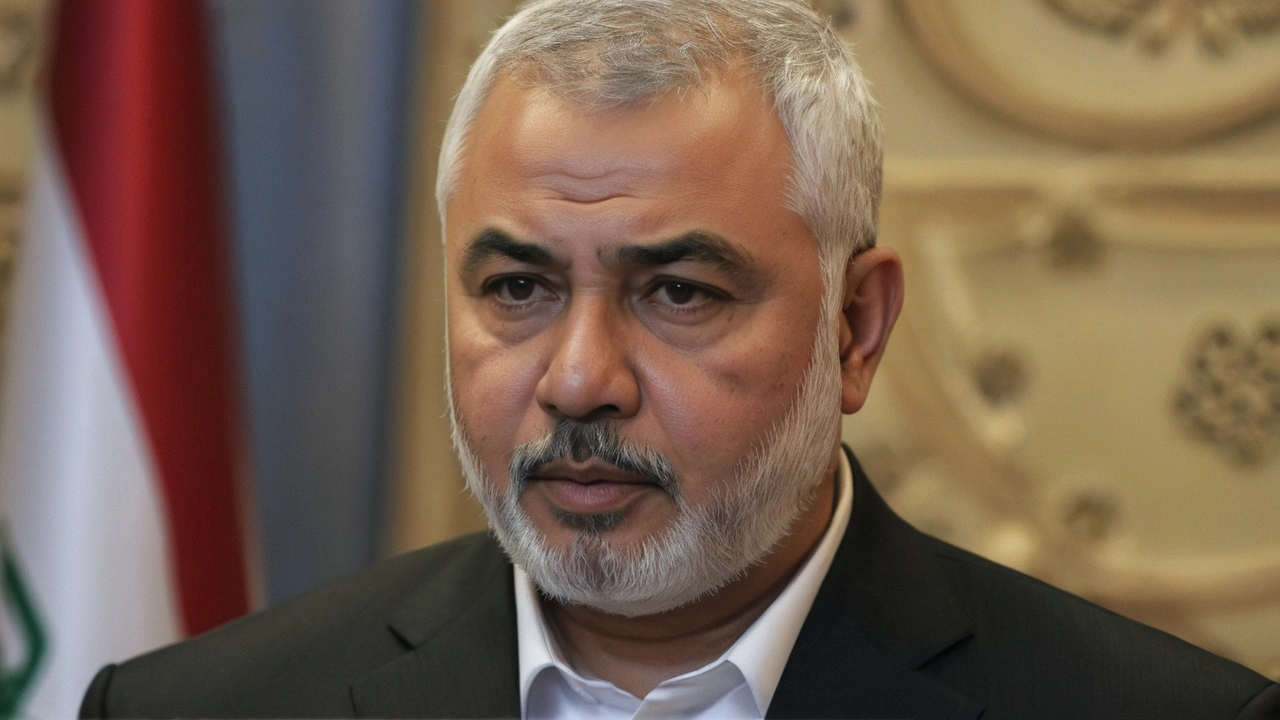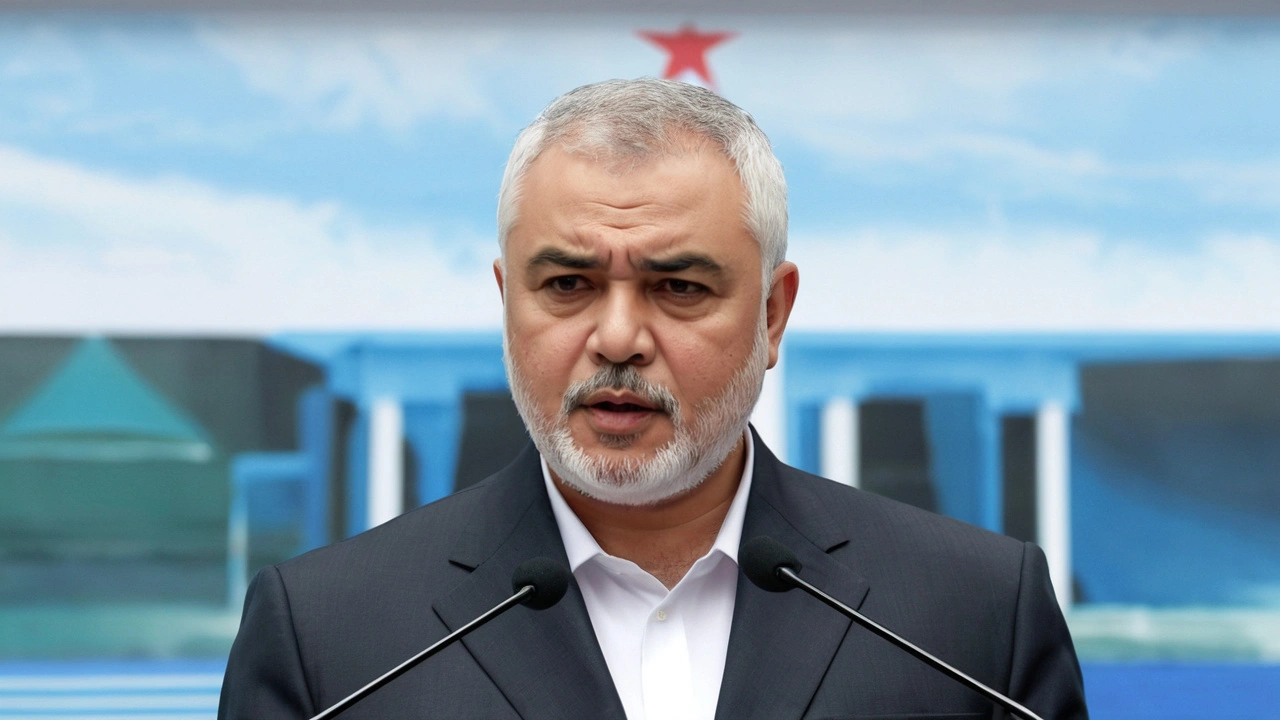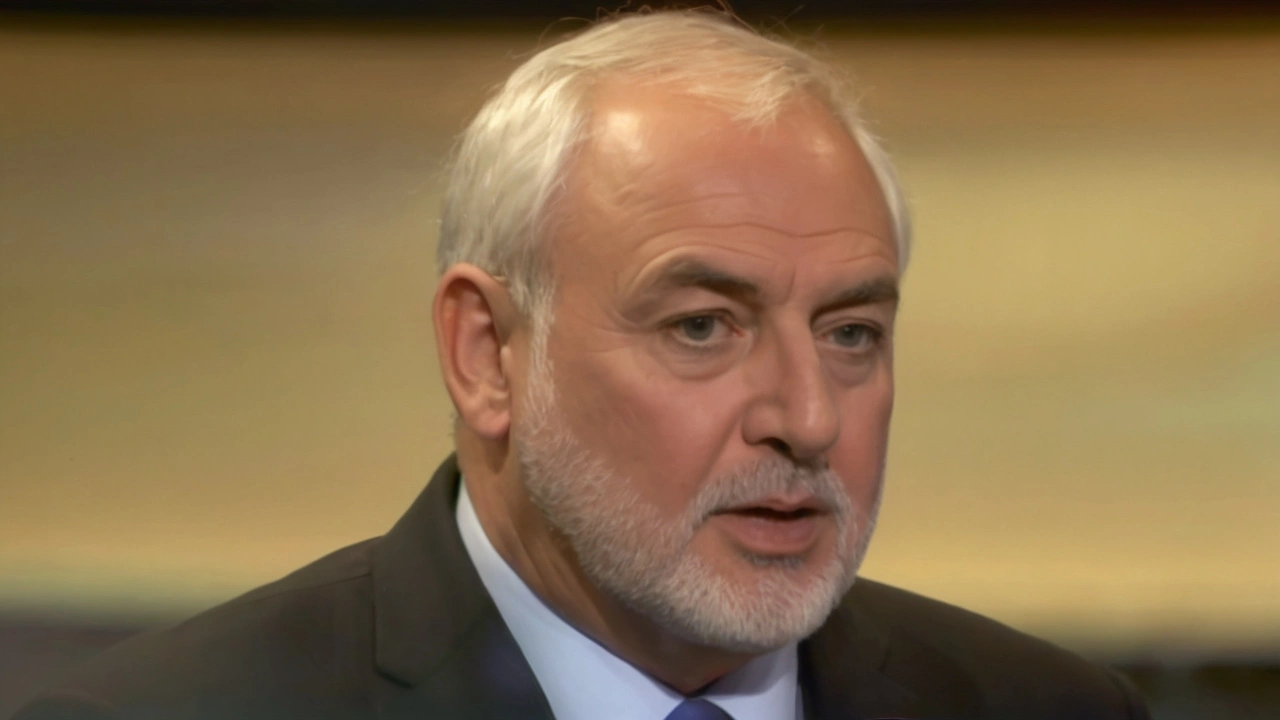31 Jul 2024
- 14 Comments
Global Leaders Unite Against Climate Change
The recent climate summit has marked a critical turning point in global efforts to combat climate change. Leaders from over 150 countries gathered with a unified goal: to significantly reduce greenhouse gas emissions. The summit culminated in ambitious pledges from some of the most influential nations, signaling a major step in the fight against climate change.
Major Commitments from Key Players
United States' Bold Ambitions
One of the most notable announcements came from the United States. President Joe Biden declared a plan to cut carbon emissions by 50% by 2030. This goal is seen as a crucial part of the US re-entering the global climate leadership role it had relinquished in previous years. The commitment involves massive investment in renewable energy technologies, reforestation projects, and stricter emissions regulations.
China's Pledge for a Sustainable Future
China, the world's largest emitter of carbon dioxide, also made significant commitments. Premier Li Keqiang announced that China aims to peak its carbon emissions by 2025. This pledge is part of a broader plan to achieve net-zero carbon emissions by 2060. China is focusing on increasing its capacity for renewable energy, such as wind and solar power, and enhancing efforts to reduce coal consumption.
European Union's Aggressive Targets
The European Union, already a leader in green initiatives, committed to reducing emissions by 55% by 2030. EU leadership underscored the importance of maintaining momentum and further accelerating efforts to meet these ambitious targets. Investments in green technology and sustainable infrastructure were highlighted as essential to achieving these goals.

Calls for Immediate Action
The summit wasn’t just about pledges and commitments; it also saw impassioned calls for immediate and robust action. UN Secretary-General António Guterres emphasized the urgent need for collective action to mitigate the devastating effects of climate change. He pointed out that the future of our planet depends on the decisions made today. Climate activist Greta Thunberg also took the stage, urging leaders to match their words with actions, stressing that the time for talking is over and immediate, tangible steps must be taken.
Critics Demand More Stringent Measures
While the summit has been lauded as a positive step, critics argue that the pledges may still fall short of what's needed to meet the Paris Agreement targets. Environmentalists and climate scientists warn that without more stringent measures, the world risks missing its goal of limiting global warming to 1.5 degrees Celsius above pre-industrial levels. They call for more aggressive policies and a faster transition to renewable energy sources.

The Road Ahead
The summit's success will ultimately be measured by the actions taken in its aftermath. The commitments made by countries like the United States, China, and the European Union will need to be closely monitored and enforced. The world will be watching to see if these promises are translated into real, measurable progress. The collective fight against climate change is far from over, but the unity and determination showcased at the summit offer a glimmer of hope.


Amanda Friar
July 31, 2024Oh great, another summit where world leaders magically decide to trim emissions like they’re cutting hair. The United States’ 50% cut by 2030 sounds ambitious, but the actual policy grind is a whole different beast. Let’s not forget that renewable investments need solid grid upgrades or the numbers stay on paper. Meanwhile, China’s 2025 peak pledge might shift the global carbon curve, yet coal still fuels half their power today. Bottom line: bold headlines demand equally bold implementation if we want this to be more than a feel‑good press release.
Sivaprasad Rajana
August 1, 2024The pledges are a step forward, but the timeline matters. Cutting emissions by half requires huge shifts in energy use and transport. If governments back these goals with clear policies, we might actually see measurable change.
Andrew Wilchak
August 1, 2024Look, the talk is nice but the real cost to taxpayers isn’t being mentioned. Without transparency we’re just swapping one set of promises for another.
Roland Baber
August 2, 2024It’s encouraging to see global cooperation, and we should build on that momentum. Every nation’s commitment adds pressure for rapid decarbonization. Think of this as a collective experiment where we all learn together. If leaders keep communicating clear milestones, public confidence grows. Let’s stay optimistic while demanding accountability.
Phil Wilson
August 2, 2024Indeed, the integrated approach to ESG compliance and net‑zero pathways is essential. Leveraging smart‑grid technology, alongside demand‑side management, can accelerate decarbonization. Moreover, scaling green hydrogen and battery storage will address intermittency concerns. While the agenda is ambitious, coordinated policy frameworks can harmonize market incentives. Let’s keep the momentum, because the transition is within reach if we stay disciplined.
Roy Shackelford
August 3, 2024All this global climate talk conveniently sidelines national sovereignty. The so‑called science agenda often serves as a front for unprecedented regulatory overreach. When countries sign on, they hand over control of their own energy strategies to unseen bureaucrats. It’s no coincidence that the same entities push for massive subsidies that inflate taxes. We need to guard our borders against these hidden agendas.
Karthik Nadig
August 3, 2024Wow, the paranoia is real! 🌍🚨 Highlighting every summit as a secret plot makes the conversation theatrical, but the data is out there for anyone to see. 🌐💥 While we should protect national interests, dismissing climate science as a ruse ignores real climate impacts. 😓 Let’s channel that energy into demanding transparency, not conspiracies.
Charlotte Hewitt
August 4, 2024Honestly, it feels like the whole thing is a staged spectacle to keep us distracted. The media hype around greener tech often hides the profit motives of big corporations. If we look past the glossy press releases, you’ll see the same old power players pulling the strings.
Jane Vasquez
August 4, 2024Oh, absolutely, because climate change is just a theatrical production put on by the Illuminati, right? 🙄 The world surely needs more drama, not actual solutions. 😂
Hartwell Moshier
August 5, 2024These pledges look good but we need real action now
Jay Bould
August 5, 2024Hey folks, great to see such diverse perspectives on the summit! From my experience, sharing best practices across borders can really speed up green tech adoption. Let’s keep the conversation friendly and constructive.
Mike Malone
August 6, 2024The recent climate summit, convened under the auspices of the United Nations, represents a landmark convergence of geopolitical willpower and environmental exigency. In particular, the United States' proclamation to curtail carbon emissions by half within the ensuing decade emerges as a conspicuous illustration of heightened ambition, albeit one that necessitates a comprehensive reconfiguration of the nation's energy infrastructure. Concomitantly, the People's Republic of China's commitment to attain a carbon emissions peak by the year 2025, followed by a trajectory toward net‑zero status by 2060, delineates a phased approach that reconciles economic development with ecological stewardship. The European Union's pledge to diminish emissions by fifty‑five percent within the same temporal horizon further underscores a collective resolve, buttressed by substantial fiscal allocations toward renewable integration and sustainable mobility. Nevertheless, the translation of these declarative targets into actionable policy frameworks remains encumbered by myriad challenges, including, but not limited to, grid reliability, supply‑chain resilience, and the sociopolitical acceptability of transitional measures. A critical examination of the financing mechanisms reveals a necessity for both public and private capital infusion, wherein green bonds, carbon pricing instruments, and incentive structures must interlock to catalyze market dynamics. Moreover, the technological landscape is poised for rapid evolution, with advances in photovoltaic efficiency, offshore wind turbine design, and electrochemical storage promising to mitigate intermittency concerns that have historically hampered renewable deployment. It is incumbent upon member states to institute robust monitoring and verification protocols, thereby ensuring that emissions reductions are quantifiable, transparent, and aligned with the overarching objectives of the Paris Agreement. Equally imperative is the cultivation of a skilled workforce adept at navigating the complexities of decarbonization, which necessitates targeted educational initiatives and vocational training programs. From an ethical perspective, the intergenerational equity considerations compel current policymakers to act with foresight, recognizing that the externalities of inaction will disproportionately burden future cohorts. In this vein, civil society organizations play an indispensable role in holding governments accountable, fostering public awareness, and advocating for just transition pathways that safeguard vulnerable communities. The synthesis of these multifaceted dimensions-technological, economic, regulatory, and societal-constitutes the bedrock upon which the summit's aspirational goals may be actualized. Consequently, the onus lies not solely with the signatories of the summit but also with the broader international community, which must coalesce around shared standards and collaborative research endeavors. Only through such an integrative and sustained effort can the promise of a low‑carbon future be rendered tangible, thereby averting the most catastrophic climatological scenarios projected by contemporary scientific models. In summation, while the summit has undeniably charted a bold course, its ultimate success will be measured by the fidelity with which nations implement and honor their respective commitments.
Pierce Smith
August 6, 2024Mike, you’ve laid out a thorough roadmap, and I appreciate the balance between rigorous analysis and constructive optimism. While the challenges are real, collaborative spirit can bridge policy gaps. Let’s keep the dialogue open, blending formal commitments with everyday actions.
Abhishek Singh
August 6, 2024Sure, because climate talks always end with instant miracles.